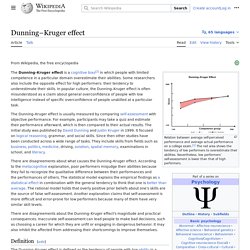

5 Creepy Ways Video Games Are Trying to Get You Addicted. So, the headlines say somebody else has died due to video game addiction.

Yes, it's Korea again. What the hell? Look, I'm not saying video games are heroin. I totally get that the victims had other shit going on in their lives. But, half of you reading this know a World of Warcraft addict and experts say video game addiction is a thing. Oh, hell yes. . #5. If you've ever been addicted to a game or known someone who was, this article is really freaking disturbing. "Each contingency is an arrangement of time, activity, and reward, and there are an infinite number of ways these elements can be combined to produce the pattern of activity you want from your players. " Notice his article does not contain the words "fun" or "enjoyment. " "...at this point, younger gamers will raise their arms above their head, leaving them vulnerable.
" His theories are based around the work of BF Skinner, who discovered you could control behavior by training subjects with simple stimulus and reward. . #4. . #3. See? Dunning–Kruger effect. Cognitive bias about one's own skill The Dunning–Kruger effect is a hypothetical cognitive bias stating that people with low ability at a task overestimate their own ability, and that people with high ability at a task underestimate their own ability.

As described by social psychologists David Dunning and Justin Kruger, the bias results from an internal illusion in people of low ability and from an external misperception in people of high ability; that is, "the miscalibration of the incompetent stems from an error about the self, whereas the miscalibration of the highly competent stems from an error about others".[1] It is related to the cognitive bias of illusory superiority and comes from people's inability to recognize their lack of ability.
Without the self-awareness of metacognition, people cannot objectively evaluate their level of competence. Original study[edit] Later studies[edit] Mathematical critique[edit] Paired measures[edit] Cultural differences in self-perception[edit] What Does Your Body Language Say About You? How To Read Signs and Recognize Gestures - Jinxi Boo - Jinxi Boo. Art by LaetitziaAs we all know, communication is essential in society.

Advancements in technology have transformed the way that we correspond with others in the modern world. Because of the constant buzz in our technological world, it's easy to forget how important communicating face-to-face is. When conversing old-school style, it's not only speech we verbalize that matters, but what our nonverbal gestures articulate as well. Body language is truly a language of its own. We all have quirks and habits that are uniquely our own. 10% from what the person actually says40% from the tone and speed of voice50% is from their body language.
Lowering one's head can signal a lack of confidence. Pushing back one's shoulders can demonstrate power and courageOpen arms means one is comfortable with being approached and willing to talk/communicate. 10 Simple Postures That Boost Performance. Psychological research suggests simple actions can project power, persuade others, increase empathy, boost cognitive performance and more… We tend to think of body language as something that expresses our internal states to the outside world.

But it also works the other way around: the position of our body also influences our mind. As the following psychological research shows, how we move can drive both thoughts and feelings and this can boost performance. 1. Pose for power If you want to feel more powerful then adopt a powerful posture. 2. Tensing up your muscles can help increase your willpower. 3.
If you’re stuck on a problem which needs persistence then try crossing your arms.